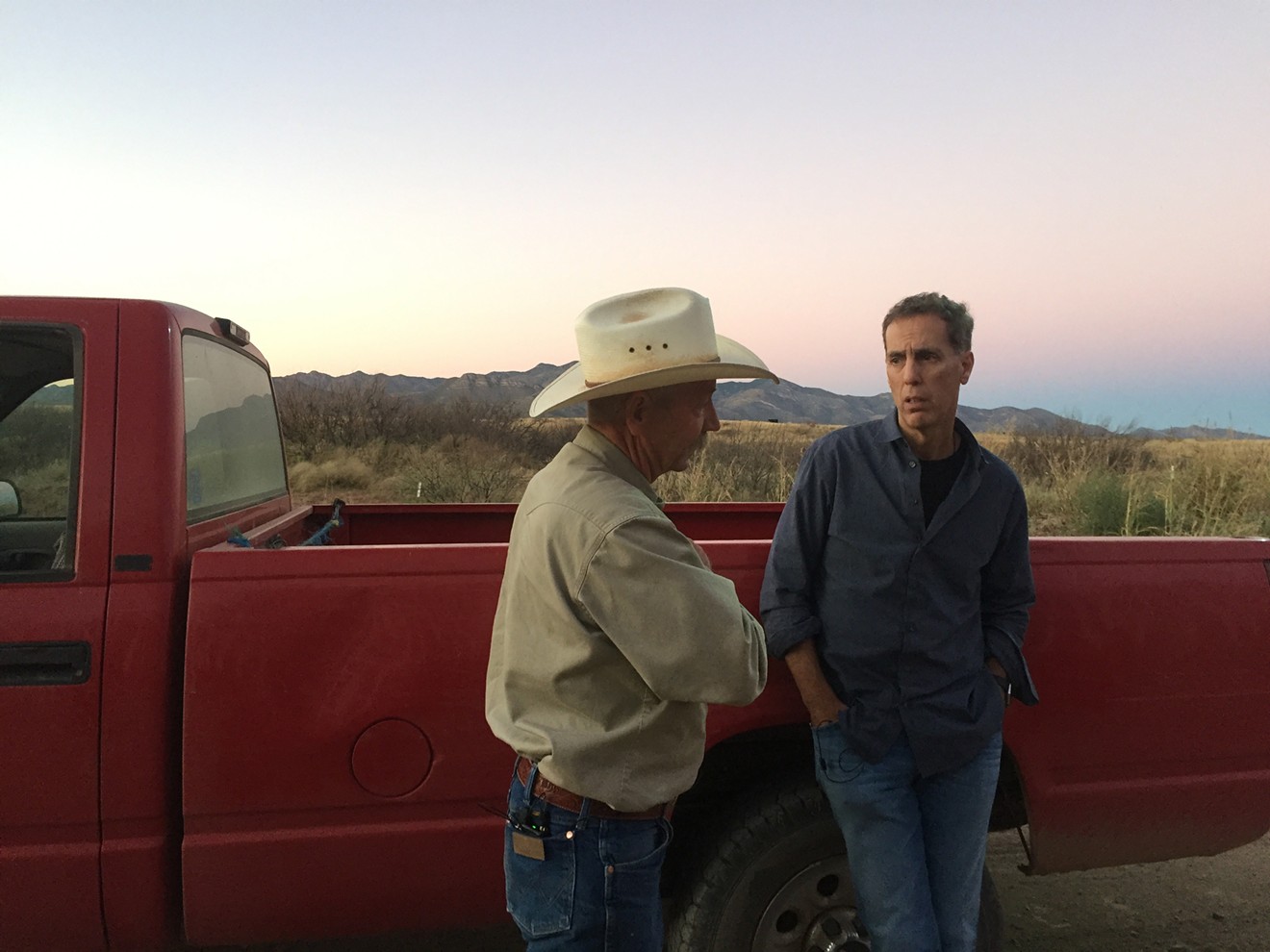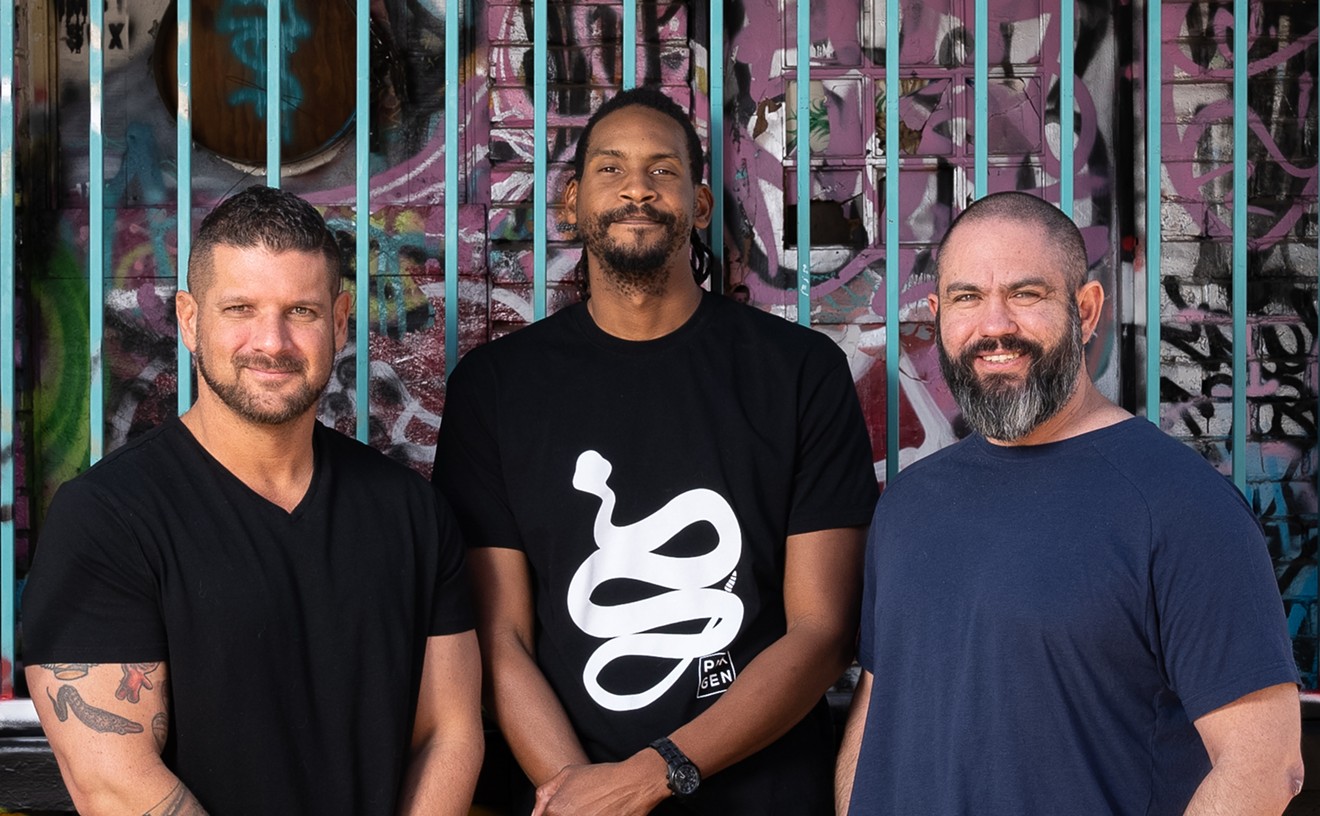To his credit, director-producer James D. Stern acknowledges, just 20 minutes in, a fatal flaw in the premise of American Chaos, his documentary wallow in the electoral pig trough of 2016. He lays out his original idea in the film’s opening minutes, just after some throat-clearing: First, we get a crisp, pleasing montage of film footage of every president to reign and campaign in the era of moving pictures. And then comes highlights from the episode of the ‘50s TV Western Trackdown in which a slick fella named Trump sells a town full of rubes on an apocalypse only he can stop. Oh, and then comes another montage, this one driving home a point that’s already been driven home, put to bed and given a nice hot toddy. Here are the TV talking heads assuring us, in early 2016, that Donald Trump will never, ever be president.
That settled, Stern cuts to himself in the summer of that same soiling election year. He speaks of his concern and dismay. He’s shocked at the Republican base’s fervent support for an obvious con man and convinced that he must set out on a journey to “see what they really see in this guy.” A journey that will help him “tell my kids why this is happening. Tell myself why this is happening.” A journey in which he’ll study that rarest of species, Homo MAGAnus, in its natural habitats, the wilds of West Virginia or Boca Raton, Florida. And then, once in the vicinity of such unknowable specimens, he’ll “just take it in.” He’ll just listen.
First up on his listening tour: The Trump-touting Boca GOP politico Armand Grossman. Next: former Hialeah, Florida, mayor Julio Martinez, a Republican operative born in Cuba and thrilled that at last his party has nominated a candidate who detests “illegal” immigrants as much as he does. After that: an AM talk-radio host whose very livelihood depends on her daily praising of Trump over the airwaves. You might wonder what utility there is in passively listening to people who enjoy public platforms, positions of power and a vested interest in one party’s success.
Twenty minutes in, Stern wonders that, too. But he doesn’t much change his approach — he’s still traveling and listening. But, to offset his subjects’ arias of grievances and misinformation, he brings in some experts — academics, mostly — to answer the questions that come to him during the rants. “What do you say to people who don’t believe in climate change?” he asks University of Chicago professor David Archer. Other authorities explain the sociological myth, shared mostly by older white folks, that 1950s America was indisputably great, and just why so many of Stern’s interviewees are convinced that Hillary Clinton has committed a bevy of treasonous crimes.
The film, I suspect, will have some minor historical value, but I fear that watching Stern well up on election night won’t offer much insight to people alive now. I’ll give him this: His chats with the Trumpists expose the pointlessness of many of the prank segments on Sacha Baron Cohen’s Who Is America? It doesn’t take a costumed provocateur to inspire Americans to expose themselves on camera as asses. Stern gets a nice-seeming woman to ask, after more than 20 women accused Trump of sexual misconduct and assault, “What the hell is wrong with these women?” She doesn’t say she disbelieves the charges; what she can’t fathom is why she’s never seen Trump with a black eye, evidence to her that these “namby-pamby” victims didn’t fight back. Another woman beams with pride after declaring, “The Democrat Party is no better than [Muammar] Gaddafi,” and that they would “chop your head off” if they could. Another insists, during the Republican National Convention, that “everyone” knows Barack Obama is planning to declare martial law and cancel the election.
Of course, none of that will shock anyone who has ever heard a “Lock her up!” chant. What is shocking: Stern neither challenges nor probes these people. He just lets them natter on, never pressing anyone on issues of race or gender, and then sometimes cuts to an academic in other city, representing Team Reasonableness. Sometimes, Stern even more cavalierly dithers away his viewers’ time. Do we need to hear him rattle off, extemporaneously, the winner of every presidential contest going back a half-century, just to prove the truism that Americans elect the candidate we would prefer “to have a beer with”? Rather than subject us to that or to a lengthy recounting of a political parable about blind men touching different parts of an elephant, Stern might fruitfully have followed up, in 2018, with the Trump devotee who insists that you just never hear anything scandalous about Trump but that you hear about Clinton scandals every damn day. How would that guy now spin his 2016 insistence that when it comes to scandal, “Where there’s smoke, there’s fire”?
Despite those occasional interjections from experts, the film becomes a portrait of something more than Stern intends. Rather than an examination of American chaos, of an aggrieved population believing outlandish and unprovable things, it’s a portrait of middle-of-the-road liberalism’s utter haplessness in the face of such a population. They go low, and he smiles politely.
[
{
"name": "Air - MediumRectangle - Inline Content - Mobile Display Size",
"component": "18478561",
"insertPoint": "2",
"requiredCountToDisplay": "2"
},{
"name": "Editor Picks",
"component": "16759093",
"insertPoint": "4",
"requiredCountToDisplay": "1"
},{
"name": "Inline Links",
"component": "17980324",
"insertPoint": "8th",
"startingPoint": 8,
"requiredCountToDisplay": "7",
"maxInsertions": 25
},{
"name": "Air - MediumRectangle - Combo - Inline Content",
"component": "16759092",
"insertPoint": "8th",
"startingPoint": 8,
"requiredCountToDisplay": "7",
"maxInsertions": 25
},{
"name": "Inline Links",
"component": "17980324",
"insertPoint": "8th",
"startingPoint": 12,
"requiredCountToDisplay": "11",
"maxInsertions": 24
},{
"name": "Air - Leaderboard Tower - Combo - Inline Content",
"component": "16759094",
"insertPoint": "8th",
"startingPoint": 12,
"requiredCountToDisplay": "11",
"maxInsertions": 24
}
]












